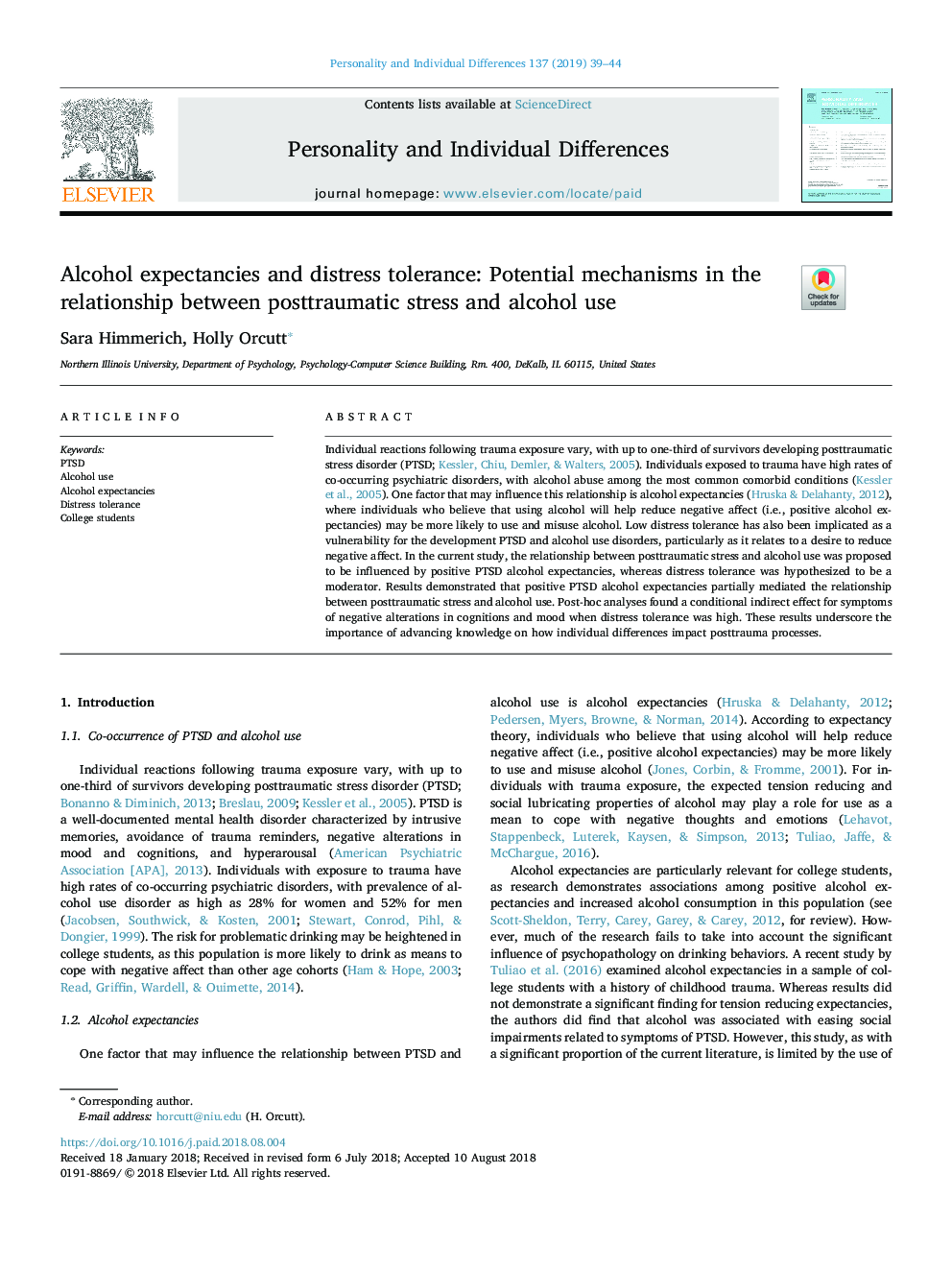| کد مقاله | کد نشریه | سال انتشار | مقاله انگلیسی | نسخه تمام متن |
|---|---|---|---|---|
| 7248326 | 1471982 | 2019 | 6 صفحه PDF | دانلود رایگان |
عنوان انگلیسی مقاله ISI
Alcohol expectancies and distress tolerance: Potential mechanisms in the relationship between posttraumatic stress and alcohol use
ترجمه فارسی عنوان
انتظارات الکل و تحمل دوری: مکانیسم های بالقوه در رابطه بین استرس پس از سانحه و مصرف الکل
دانلود مقاله + سفارش ترجمه
دانلود مقاله ISI انگلیسی
رایگان برای ایرانیان
کلمات کلیدی
موضوعات مرتبط
علوم زیستی و بیوفناوری
علم عصب شناسی
علوم اعصاب رفتاری
چکیده انگلیسی
Individual reactions following trauma exposure vary, with up to one-third of survivors developing posttraumatic stress disorder (PTSD; Kessler, Chiu, Demler, & Walters, 2005). Individuals exposed to trauma have high rates of co-occurring psychiatric disorders, with alcohol abuse among the most common comorbid conditions (Kessler et al., 2005). One factor that may influence this relationship is alcohol expectancies (Hruska & Delahanty, 2012), where individuals who believe that using alcohol will help reduce negative affect (i.e., positive alcohol expectancies) may be more likely to use and misuse alcohol. Low distress tolerance has also been implicated as a vulnerability for the development PTSD and alcohol use disorders, particularly as it relates to a desire to reduce negative affect. In the current study, the relationship between posttraumatic stress and alcohol use was proposed to be influenced by positive PTSD alcohol expectancies, whereas distress tolerance was hypothesized to be a moderator. Results demonstrated that positive PTSD alcohol expectancies partially mediated the relationship between posttraumatic stress and alcohol use. Post-hoc analyses found a conditional indirect effect for symptoms of negative alterations in cognitions and mood when distress tolerance was high. These results underscore the importance of advancing knowledge on how individual differences impact posttrauma processes.
ناشر
Database: Elsevier - ScienceDirect (ساینس دایرکت)
Journal: Personality and Individual Differences - Volume 137, 15 January 2019, Pages 39-44
Journal: Personality and Individual Differences - Volume 137, 15 January 2019, Pages 39-44
نویسندگان
Sara Himmerich, Holly Orcutt,
